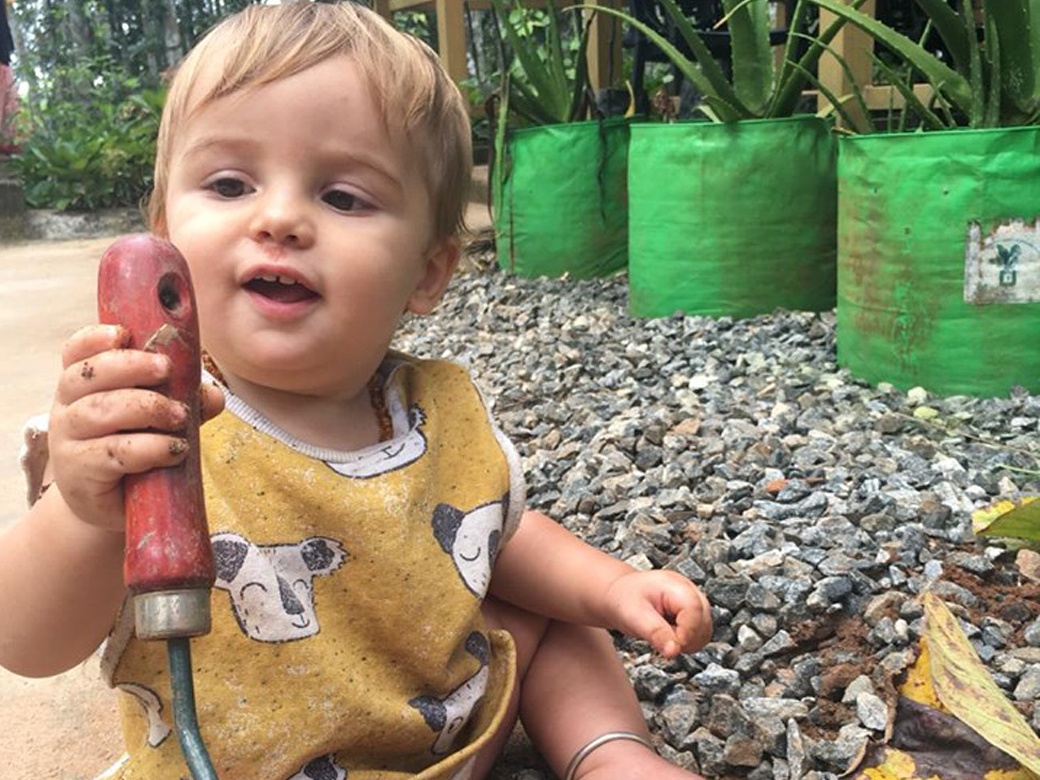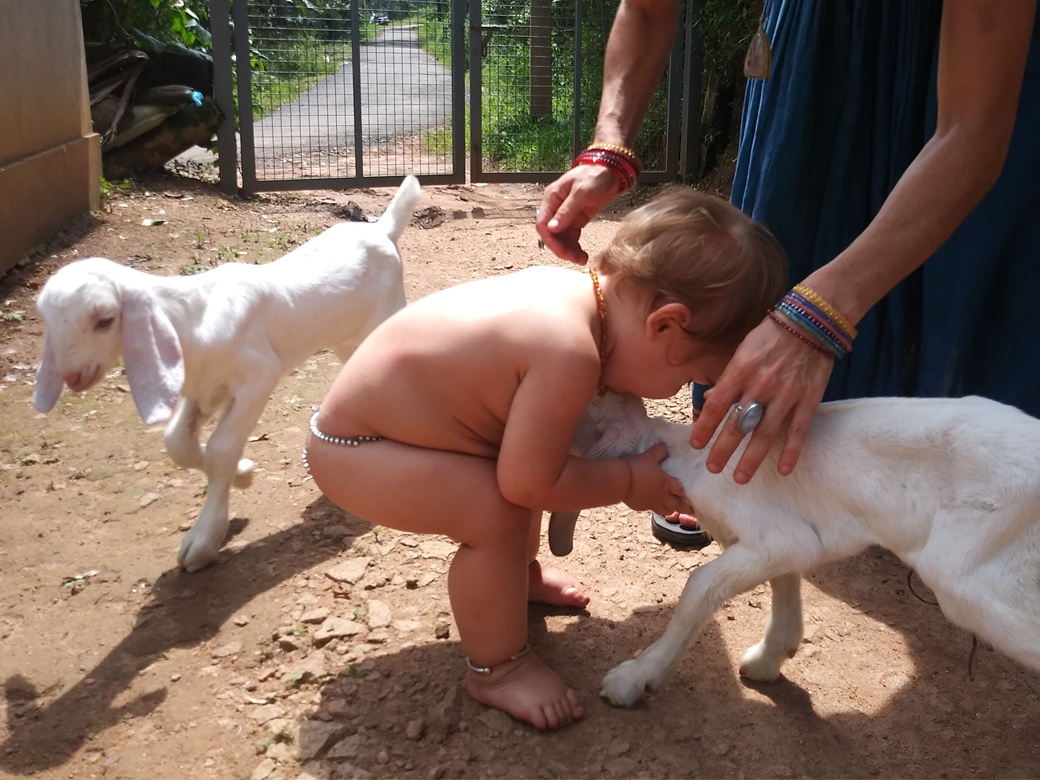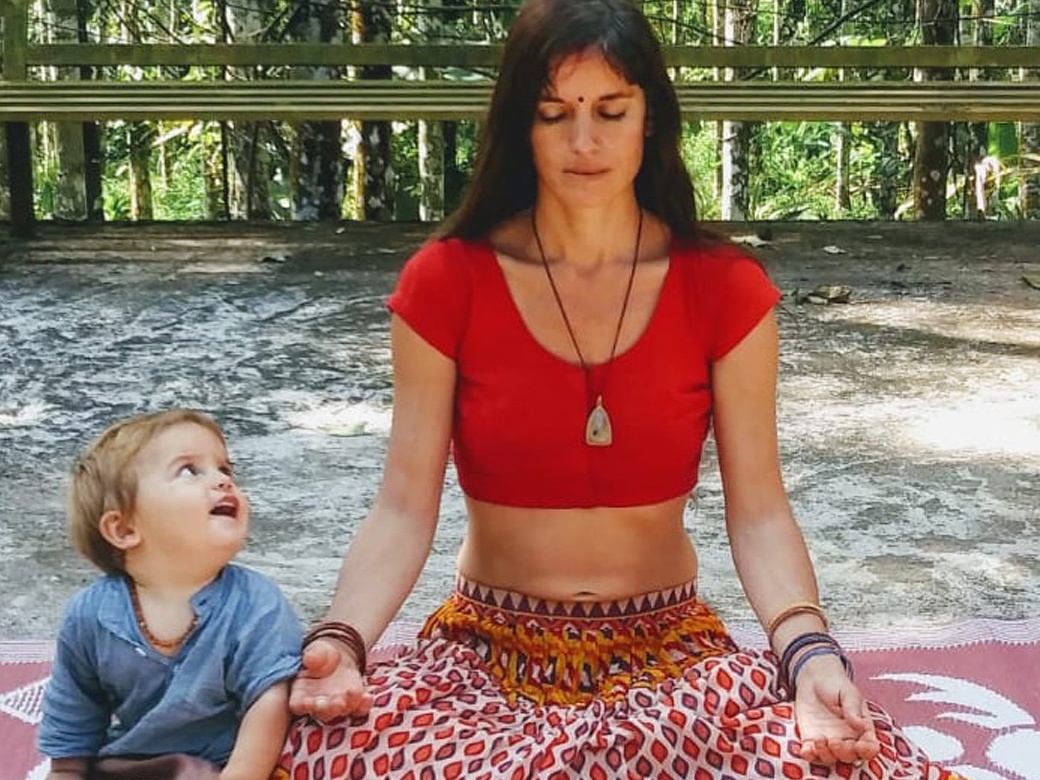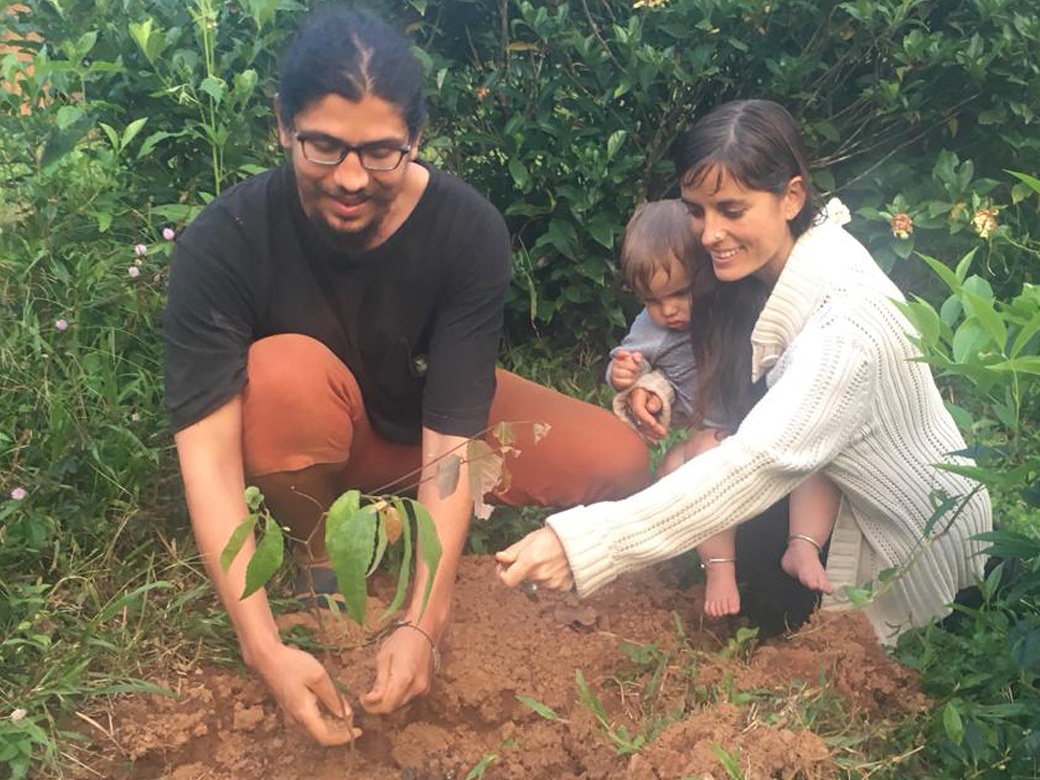

The human brain, of the brains currently available for scientific study, is the most malleable brain. In its first year, an infant’s brain experiences a volume increase of 140% in the grey matter – grey matter consists of the brain’s structural support as well as myelinating and cleaning cells. Thus the form of stimulation an infant receives during this time is critically influential. As parents, the most powerful stimulation we can provide our child is a loving presence. Depending on familial needs and pending arrangements a consistent face-to-face presence with one’s infant may not be possible, still, there are methods to provide a sense of comfort. However this circumstance is not ideal, and furthermore TGG envisions a world where parents can dedicate themselves to their children during the first years of their life.
As such an initiative of TGG’s Nature Connection program is to provide families with young infants the opportunity to ground into the growth of their family. This initiative known as Nature’s Way is tasked to provide families economic accommodation and robust organic vegetarian sustenance within the rich biodiverse setting of The Green Garden. A family participating in Nature’s Way is asked only to enjoy the company of their loved ones. The Green Garden family tends to the practicalities of the day. To this one might say, “I enjoy the activities of the day, they keep me alive.” Yes, movement of the body and mind is a healthy practice, yet amongst the setting in Nature’s Way, the family will find a pattern of health that orbits around genuine presence.
The world has plenty of well-established professionals, let us balance this with well-established families. An adult may critique this way of engaging, saying it is fickle, it is for youth who haven’t yet a job or ‘real’ responsibility. But it is worth announcing to such a critic, whatever your reality it is supported by the natural world, and thus to engage honestly is to accept alignment with the natural tendency which animates us.To accept such a relationship may further imply a number of practical accommodations, such as diet choices, leisure activities, clothing options, mode of transportation. However, TGG’s nature connection aims to address may be the most substantial of them all, childhood education.
Educating a child at home requires the involvement of the family. This sort of involvement is an opportunity for each member of the family to experience a particular strength in their familial relationships – that of genuine trust. Home education is definitely a responsibility, the task of molding a world citizen is not a small one. Yet in the act of taking such an effort into the home we are abundantly rewarded, with the overflowing love of those we care for, and this love we carry with us into the world we share.
To understand the practical ‘HOW?’ of home education as here described, TGG believes it is imperative, to begin with, regard for nature. This is the cornerstone of true education. With unflinching respect for the ecosystem which has birthed us, we cannot help but perpetuate generosity and good faith. As we see, the ultimate aim of education is to produce honorable people with kind hearts and open minds. As stated, we are birthed from our ecosystem, and thus to regard the natural world is inherent to our being. Being a facilitator to our child’s education, the primary task is to encourage this regard. To encourage well, we must look at ourselves, and acknowledge the limits of the world we’ve chosen to live in. For various reasons an adult may feel they’ve lost their regard for the natural world, even so, because this regard is an aspect of our being, it cannot be lost, it only lies dormant. Who better than our own child to ground us in the fullness of our identity.
Hence, in choosing to educate a child at home one understands it is fundamental to encourage the child’s attraction to the natural world. If one feels to have lost their own connection, it is only a matter of accepting your child’s love, and soon this attraction and respect will again flow through you. Living with unforgiving regard for nature is the backbone of authentic education, it the manner in which realized persons are molded. This is the vision of TGG’s nature connection.






Community is as old as we humans are, in fact the practice of community even predates us. The congregation of unicellular life may serve as a form of active community, though if unicellular life seems too far a stretch the birth of multicellular life is definitely an example of community. This point to say that community may as well as be as old as time itself, and thus we can accept it as an integral part of life.
The conscious decision to participate in community, is from certain well respected perspectives, the culminate of our capacity to experience. Acknowledgment of the philosophical weight in community is facilitated by awareness of its practical benefits.
The Finnish education system, perennially ranked in the top 3 amongst international education authorities, participates in the practice of class cohorts. This means that elementary aged children, 5 – 11, in Finland are progressed from one standard to the next with the same group of students and the same teacher. The benefit of such a practice is consistent community, which has been empiricly shown to facilitate greater perceptions of self-efficacy.
Additionally this practice of cohort progression instills a sense of belonging. These are my peers, my teacher, I belong with them. Feeling as if one has a home amongst their fellow school mates is a substantial benefit for mental health. In fact, psychotherapeutic practice is founded on creating a relationship which is characterized by a similar sense of belonging.
Maybe most relevant is the fact that a community is most likely comprised of people of all ages, young and old and in between, living amongst one another and each with a specific and vital role. Such a network of relationship expands a child’s mind, exposing them to the variability which persists throughout our world. Such relationships also promote responsibility and awareness of one’s actions, because always there is the opportunity to share and receive. With consistent availability of caring attention a young person learns empathy. These are the benefits of community, of an extended family.